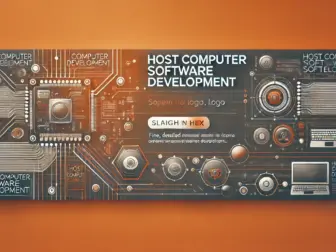Tag - Host computer software development
Exploring the World of Host Computer Software Development
Host computer software development is a crucial aspect of modern technology that involves creating software programs to run on a central computer system. These programs are designed to manage and control various functions, such as data processing, storage, and communication within a networked environment. Host computer software development plays a vital role in ensuring the smooth operation of large-scale systems, such as servers, mainframes, and supercomputers.
Developing software for host computers requires a deep understanding of system architecture, programming languages, and network protocols. Programmers must be adept at writing code that is efficient, reliable, and secure to meet the demands of high-performance computing environments. They must also consider factors such as scalability, fault tolerance, and data integrity when designing software for host computers.
One of the key challenges in host computer software development is ensuring compatibility with a wide range of hardware devices and operating systems. This requires thorough testing and validation to ensure that the software functions correctly across different platforms and configurations. Developers must also stay updated on the latest technologies and trends in the industry to adapt their software to changing requirements.
Host computer software development encompasses a broad range of applications, including operating systems, database management systems, network management tools, and security software. Each of these applications plays a critical role in maintaining the stability and security of computer systems in a networked environment. By developing robust and reliable software for host computers, programmers can help organizations improve their operational efficiency and productivity.
As the demand for high-performance computing continues to grow, the field of host computer software development is expected to expand rapidly. This presents exciting opportunities for programmers to showcase their skills and creativity in designing innovative solutions for complex computing challenges. By mastering the art of host computer software development, developers can make a significant impact on the future of technology and contribute to the advancement of computing capabilities.
In conclusion, host computer software development is a dynamic and challenging field that requires a unique blend of technical expertise, creativity, and problem-solving skills. By mastering the principles of system architecture, programming languages, and network protocols, programmers can create software solutions that power the next generation of host computers. With dedication and perseverance, developers can make a lasting impact on the world of technology and drive innovation in the field of high-performance computing.
